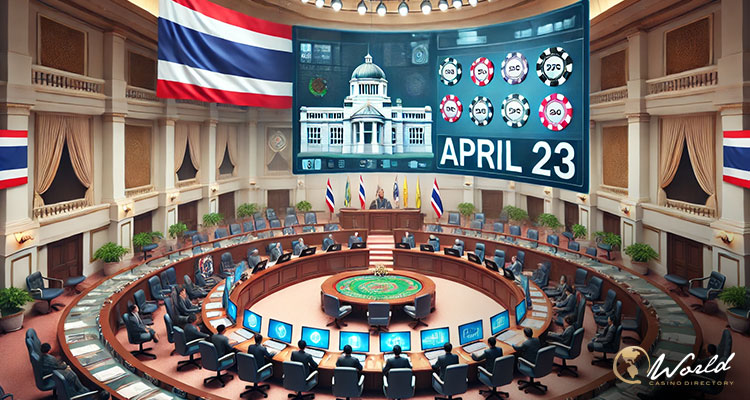Thailand’s upper house is preparing to take its first official step in evaluating the controversial Entertainment Complex Bill, which includes provisions for legalizing casino operations as part of a broader investment initiative. A newly formed Senate committee is set to meet for the first time on April 23 to organize its internal leadership and establish the framework for a six-month review.
Political tensions and concerns over Committee neutrality:
The 34-member panel, originally 35 until the resignation of Senator Premsak Piayura, was convened following a motion by Senator Sorachat Wichaya Suwanphrom. The committee includes 12 external advisors and will spend 180 days examining the proposal. According to unnamed sources cited by The Bangkok Post, the upcoming meeting will focus on assigning key roles, replacing Dr. Premsak, and mapping out the study’s direction.
Despite its formal structure, questions have already emerged regarding the committee’s independence. Reports suggest that there is ongoing lobbying for the chairmanship to be awarded to an individual with family ties to political figures in Buri Ram, a northeastern city with strong links to the Bhumjaithai Party. This has fueled speculation that the study could be leveraged for political ends, particularly given recent strains between Bhumjaithai and the leading coalition party, Pheu Thai.
Most of the Senate’s 200 members are believed to be aligned with Bhumjaithai, adding to public skepticism about whether the committee can carry out an impartial assessment of the bill.
In a separate but related development, the lower house’s deliberation on the same proposal has been delayed until at least July, with national priorities such as earthquake response and foreign trade taking precedence.
Pheu Thai clarifies the project’s broader scope:
Leaders of the ruling Pheu Thai Party have attempted to clarify the intent behind the bill, urging the public not to equate it solely with gambling legalization. Pheu Thai secretary-generalSorawong Thienthong emphasized that the project should be seen as a strategic investment plan, where casinos are only one of several elements designed to attract capital and stimulate economic growth.
“Other types of investments are already covered by the existing laws,” Sorawong stated. “This is a special [project] to draw investors and generate revenue.”
Echoing that sentiment, Pheu Thai list-MP Anusorn Iamsa-ard dismissed allegations that the complex would become a vehicle for illicit activity. He called on critics not to “distort information about the entertainment complex project,” and said that party members would use the current House recess to engage with the public and explain the bill’s rationale and intended benefits.
Anusorn also refuted claims that casino operations would open the door to money laundering, pointing to international examples where gambling is tightly regulated and part of legitimate entertainment industries.
While the Senate committee is only now beginning its formal review, observers suggest that any meaningful progress, including potential legislation and licensing procedures, may still be years away.


